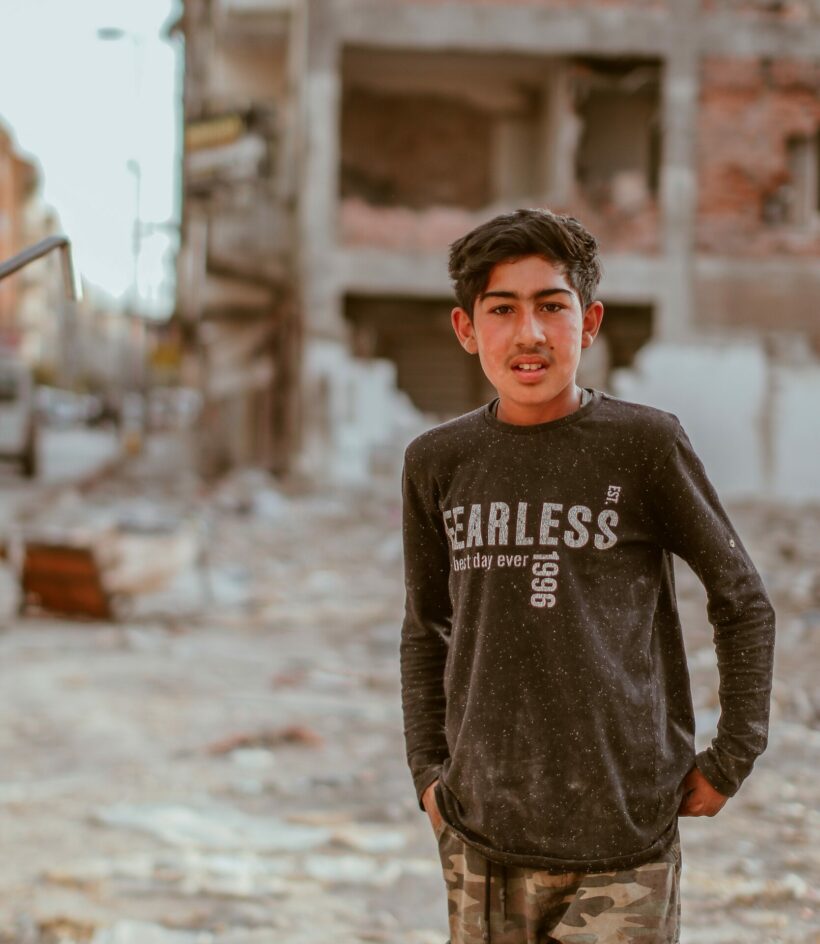The barbarity of death and pain of civilians
The murders of civilians at the hands of armed forces, of state-of-the-art combat specialists, with their high firepower created in the military-industrial complex, are shamelessly broadcast live by the press networks of the same side, unleashing all sorts of psychological shocks on the global population, ranging from disgust to terrifying intimidation.
If civilians, i.e., children, adolescents, young people, workers, labourers, old men and women, are being murdered by the barrel of a gun, and such a monstrous act is euphemistically called armed conflict, preventive war, defensive action, retaliatory warfare, even a peace mission, it will take a lot of humanist fortitude to denounce it.
The elaboration of narratives – political, religious, cultural, economic and even historical – that justify or explain the inexorable need to carry out the massacre of civilian populations in different territories of the planet by armies, navies and intelligence services, is the greatest disloyalty of the intellectual strata against the human species. Their falsehood and inconsistency of arguments is only a sign of their cowardice in the face of the infamy of a group of insanely powerful people, blinded by their unbridled greed and their contempt for life in general and for human life in particular.
Humanism and anti-humanism
In this historic moment of globalisation, thanks to technological and communicational progress, the real conflict, without embellishments and disguises, is definitely between humanism and anti-humanism, and it is in this context that today’s citizens in every corner of the planet will necessarily have to weigh up, forced by violent circumstances to reflect and take a position without any double standards or half-measures. Those who are truly committed to life, to humanity, to a future free of prehistoric violence, will be actively challenging the murderous sides, and such a stance will show their courage, their ethical force, their true love for life and for The Human Being.
There is a need for consciousness in these fateful times, a need for a freely assumed historical responsibility, a vital commitment, a style of life that disregards the argument that all is lost, and that the violent have forever gained control of the direction of world events. It is the clamour to build a new reality, a future in which we overcome schizophrenic individualism, in which we assume the nonviolent direction of building sovereignty, of the collective, of valuing diversity, in which the central position of human life and its requirements of dignity are placed above any other belief, any other value.
Each person will have to overcome the discouragement that overshadows their existence, the fruit of the infamy and brutal consequences of the violence of the present moment, by taking the opposite direction and increasing their faith in life, their growing evolution, and thus recovering in their collective struggle, courage, energy, conviction and the joy of living.
Humanity’s long future
The ongoing wars, i.e., the slaughter of Yemeni, Ethiopian, Kurdish, Syrian, Iraqi, Armenian, Ukrainian, Israeli and Palestinian civilian populations, plus multiple latent conflicts threatening the same number of civilian populations in different latitudes, are an indicator of the failure of our humanist ideals. But these current “triumphs” of the irrationality of the world’s anti-humanist leaderships are by no means assured of perpetuity. Every violation of human life and dignity, everywhere in the world, is a cause for denunciation and non-acceptance by the humanist-minded citizens of the world.
The vile position and actions of the powerful today are clear, and the same clarity and resolution is shared by those of us who reject violence in all its forms. And the future, the long future of humanity remains open, as long as the humanising activity of countless individuals and collectives continues, leaping over the failures of the moment, hoisting and valuing each new attempt to build and bring to the present the future we dream of.
Collaborators: M. Angélica Alvear Montecinos; Guillermo Garcés Parada; Sandra Arriola Oporto; Ricardo Lisboa Henríquez and César Anguita Sanhueza. Public Opinion Commission.










